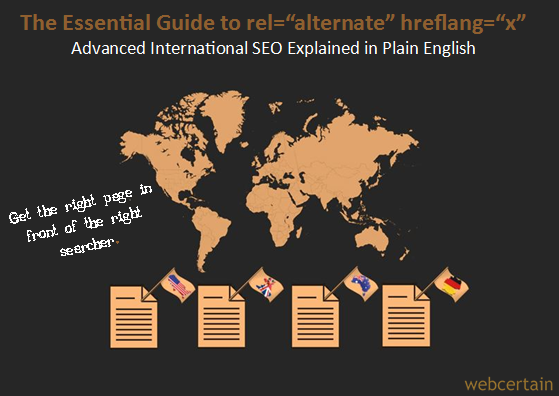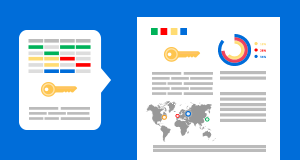The topic which, without fail, raises the most questions at all International Search Summit events is geo-targeting. Ensuring that every visitor to your site sees content that is relevant and appropriate for them, in its context and language, is at the heart of all international SEO yet achieving it is a major challenge for many online marketers. The introduction of the Hreflang was seen by many as the answer to the geo-targeting conundrum – however it brings its own set of challenges and isn’t always the right approach.
At the International Search Summit London on 12th May, Google Webmaster Trends Analyst and Engineer Gary Illyes will be speaking about his work on hreflang and how and why international organisations should use it. In advance of the event, Gary gives us some insight into his role and what delegates can expect to take away from his talk.
Gary, what do you enjoy most about working on international projects at Google?
My main project is to make sure that for each query, when it makes sense, the user gets local results (e.g. present users a page in their language if a foreign-language page does not add much value). That includes hreflang, but is not limited to it. The project touches several components in our infrastructure and its effect can help millions of users find the right thing in the right language, which feels pretty good.
Geo-Targeting causes headaches for many international search marketers – what are the basics everyone should be aware of?
As an ex webmaster I can tell getting geo and language targeting right can be complicated and nerve wrecking, indeed. To help website owners, we published several Help Center articles, videos, and blogposts on this topic; our recommendations are there to make implementation easier and less painful.
You are involved in providing support for the hreflang annotation. Where do people go wrong with hreflang? And why is it so important?
When deploying rel-alternate-hreflang annotations, webmasters should make sure the links are equally deployed on all localised versions of the content. In many cases the links are not present on all the versions which renders the annotations useless since we can’t validate their correctness.
What will people learn from your session at ISS?
The session will give you a good idea about how rel-alternate-hreflang annotations fit in the big picture, what are the gotchas and common issues. This knowledge might be valuable when you consider implementing rel-alternate-hreflang across your web properties, or if you have to convince others about its usefulness.
Why attend the International Search Summit?
ISS, to my knowledge, is the only conference that focuses on international websites and their issues. Regardless of the webmasters’ skill, this conference is a good investment if the webmaster has to deal with sites that target several countries or languages.
Register with the discount code ISS15 to save 15% on ISS and ISS/SMX Combo passes. Other topics at the event will include international keyword research, the global search engines and international content marketing.
The International Search Summit London takes place on 12th May at Chelsea football club, as part of SMX London.
Gemma Houghton
Latest posts by Gemma Houghton (see all)
- Watch the recording: How to identify and seize growth opportunities in international markets - April 20, 2022
- International marketing recruitment: How to drive global growth amid The Great Resignation - February 23, 2022
- 5 trends to include in your 2022 international digital marketing strategy - December 21, 2021








[…] Summit London will take place on Monday 12th May, as part of SMX London. Other topics will include geo-targeting and hreflang, international keyword research, yandex and maximising organic and paid synergies […]